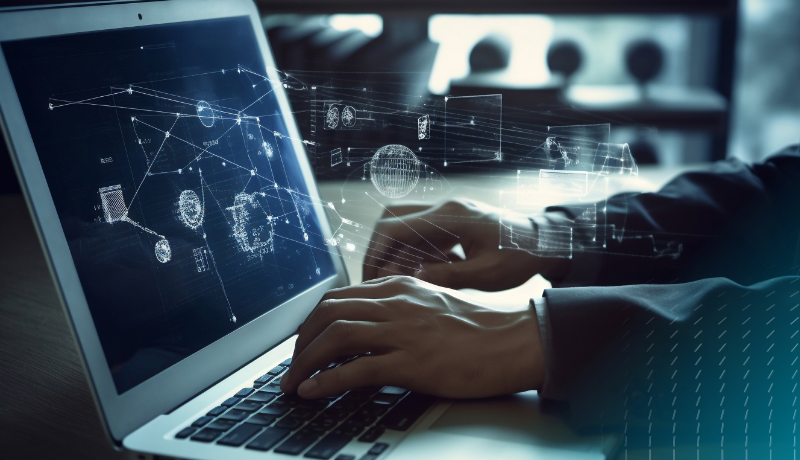On June 5, 2024, a three-judge panel on the U.S. Court of Appeals for the Fifth Circuit unanimously voted to vacate the SEC’s Private Fund Adviser Rules (PFAR). No part of PFAR will go into effect, and private fund managers no longer need to prepare for the September 14, 2024 and March 14, 2025 compliance dates.
Let’s examine the Fifth Circuit’s decision and what it means for private fund managers moving forward.
The Fifth Circuit vacates PFAR
On August 23, 2023, the SEC adopted PFAR, which included several new requirements for all private fund advisers, whether registered or not.
On September 1, 2023, a coalition made up of the National Association of Private Fund Managers, Alternative Investment Management Association, Limited, American Investment Council, Loan Syndications and Trading Association, Managed Funds Association, and National Venture Capital Association filed suit against the SEC in the Fifth Circuit.
The Fifth Circuit held that the SEC exceeded its statutory authority under Section 221(h), added in 2010 through Dodd-Frank, and Section 206(4), an anti-fraud provision of the Investment Advisers Act of 1940.
The Fifth Circuit rejected the SEC’s argument that Dodd-Frank significantly expanded the SEC’s rulemaking authority regarding private fund advisers via Section 211(h). The court held that Section 211(h) applied only to retail investors and did not apply to private fund advisers.
The court held that Section 206(4) was pretextual and required the SEC to identify a fraudulent act or practice before it issued rules designed to prevent said act. The court found that the SEC failed to show that PFAR’s reporting and disclosure requirements were rationally connected to preventing fraud and the rules were not “reasonably designed” to prevent fraud as required under Section 206(4).
Review the Paul Weiss Client Memorandum for a more in-depth explanation of the Fifth Circuit decision in National Association of Private Fund Managers v. SEC, No. 23-60471.*
What’s next for the SEC?
The SEC has 45 days to seek an en banc hearing from the full Fifth Circuit and 90 days to file for review by the U.S. Supreme Court. In either case, litigation would extend beyond the original PFAR compliance dates of September 14, 2024, and March 14, 2025.
The SEC may choose neither of these routes and instead focus on future exams and rulemaking. It’s likely that the SEC will continue its heightened scrutiny of private fund advisers and may perform sweeps on key issues outlined in its 2024 Exam Priorities Report. The SEC could use exam findings to support future rulemaking.
What’s next for private fund managers?
Private fund managers can step back from preparing for PFAR and determine which (if any) changes are needed to bolster their compliance programs and investor relations processes.
In some cases, PFAR translated an industry best practice into a regulatory requirement, such as documenting annual compliance reviews and findings in writing or avoiding certain fee and expense activities. Private fund managers may choose to adjust their compliance programs in light of the SEC’s previous rulemaking attempts simply to align with industry best practices.
Additionally, the SEC will likely continue to push its agenda for proactive compliance, expressed by Gurbir S. Grewal, Director of the SEC’s Enforcement Division, to the New York City Bar Association’s Compliance Institute 2023. Grewal expects chief compliance officers to take a three-pronged, proactive approach to compliance that includes:
- Education: CCOs must educate themselves and firm employees on relevant laws and regulations and “external developments relevant to your business,” such as new SEC examination priorities or enforcement actions.
- Engagement: CCOs must fully engage with stakeholders across their firm’s various business units and understand its business lines to accurately design and adopt compliance policies.
- Execution: CCOs must fully execute the compliance policies and procedures they put to paper. Grewal noted many firms faced enforcement actions resulting from a lack of implementation despite having policies and procedures in place.
Firms should continue their digital transformation
Industry growth and complexity demand that private capital market firms continue their digital transformations. Without leveraging legal technology and advanced AI solutions, private fund managers will struggle to meet investor expectations, rein in operational expenses, and compete in today’s tough fundraising environment.
Ontra’s Legal Operating System for Private Markets offers the industry-specific AI that managers need to build a competitive advantage. Currently comprised of Insight, Atlas, and Contract Automation, Ontra’s Legal OS automates contracts, streamlines workflows, and unlocks insights for more than 700 of the world’s leading private markets firms.
Insight, in particular, uses AI to power the private fund lifecycle. It modernizes and simplifies fundraising and compliance, from digitizing side letters to MFN elections. Insight also helps private fund managers prepare for an SEC exam and respond quickly with up-to-date information.
Join leading private capital market firms in using Insight to maintain a proactive compliance program for your firm. Schedule an Insight demo today.
*The organizations referenced in this article have no affiliation with Ontra, and neither Ontra nor such organizations promote or endorse the other’s products or services.


